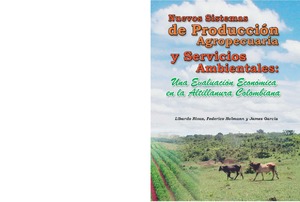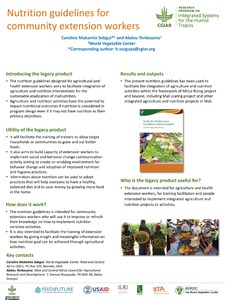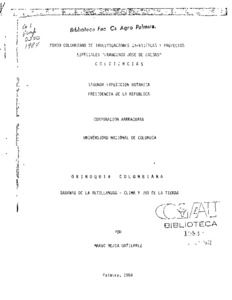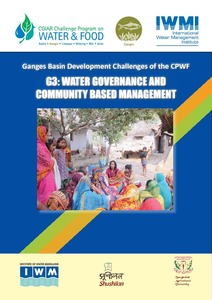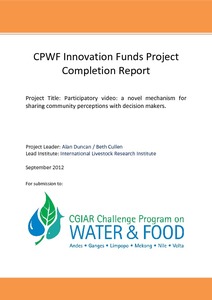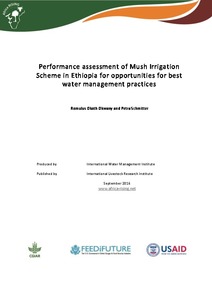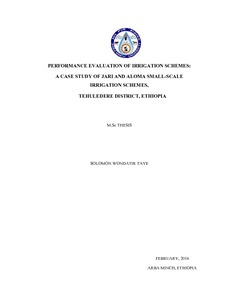Options for adapting to climate change in livestock-dominated farming systems in the greater horn of Africa
The greater horn of Africa is one of the least developed regions in Africa. Livestock are an important economic resource and an essential asset for poor farmers in this region. Climate variability, population growth, low economic development, limited market integration, and low fertilizer use, amongst others put serious pressure on livestock production. The sustainability of the livestock production in the rangelands and the integrated crop-livestock systems is further jeopardised by climate change.
Orinoquia colombiana: sabanas de la altillanura: clima y uso de la tierra
Overview of G3: Water Governance and Community Based Management
The International Water Management Institute is the lead institute for the Ganges Basin Development Challenge research project titled Water Governance and community-based management in coastal regions of Bangladesh. This study is one out of five research projects in the Ganges basin commissioned and funded by the CGIAR challenge Program on Food and Water inundation, salinity intrusion and severe flooding in the coastal areas is a frequent occurrence in Bangladesh. This leads to loss of life and property as well as severe impacts on livelihoods.
Participatory video: A novel mechanism for sharing community perceptions with decision makers (CPWF innovation funds project completion report)
Perfil socio-economico de cinco comunidades del municipio de puerto Lopez
Performance assessment of Mush Irrigation Scheme in Ethiopia for opportunities for best water management practices
Performance evaluation of irrigation schemes: A case study of Jari and Aloma small-scale irrigation schemes, Tehuledere District, Ethiopia
Irrigation scheme performance assessment is vital to evaluate the impacts of irrigation practices, to identify performance gaps and to improve system performances. However, the performance of Jari and Aloma Small Scale Irrigation (SSI) schemes was not assessed since its operation. Therefore, this study was carried out to evaluate the water delivery, on-farm water management and organizational performances of the two SSI schemes.
Physically based rainfall: Runoff modelling in the northern Ethiopian highlands: The case of Mizewa watershed
Potential environmental impacts
As the problems of impact assessement are rather intractable, a fairly simple dual approach is proposed. First the major components of environmental impact of current agricultural production systems in Africa (i.e. impact of cropping, livestock keeping, fuelwood and timber extraction and burning) are summarised. Second, "danger zones" in which current and future environmental impacts will be most severe and on which ILCA has focused its problem solving-research is identified.
Plant breeding and the nutritive value of crop residues. Proceedings of a workshop
Presents papers dealing with the use of crop residues as livestock feed in smallholder crop/livestock farming systems, and the role of plant breeding in maintaining or improving their nutritive value. Discusses factors limiting the nutritive value of crop residues, and the effect of genotype and environment on the nutritive value of crop residues. Outlines perspectives and implications for crop improvement programmes. Includes recommendations.

